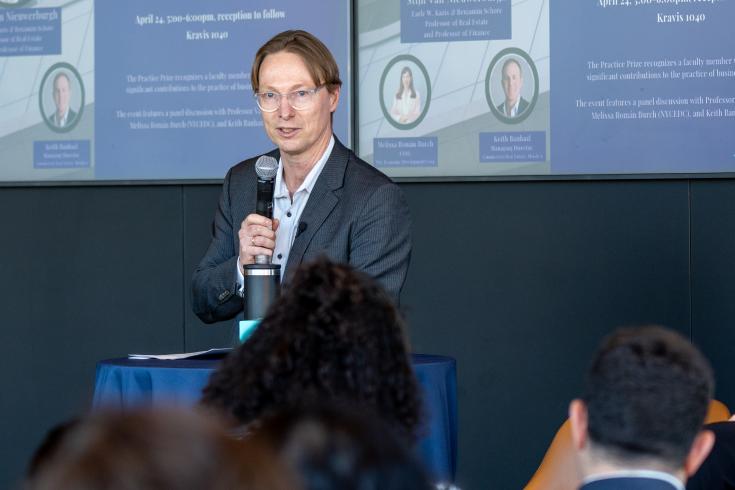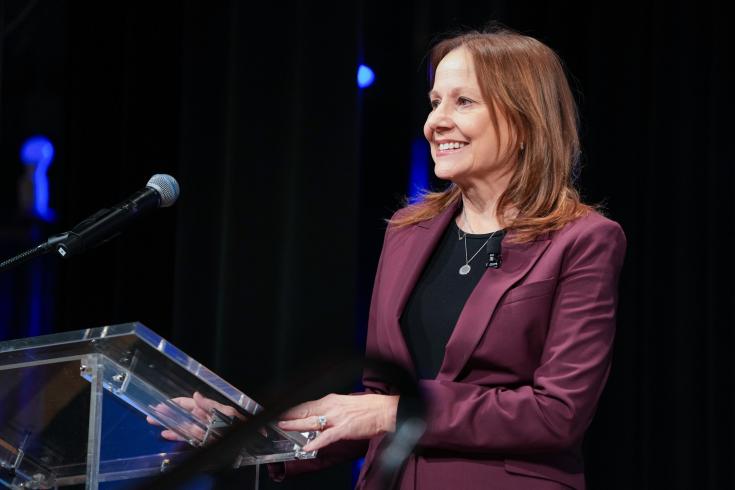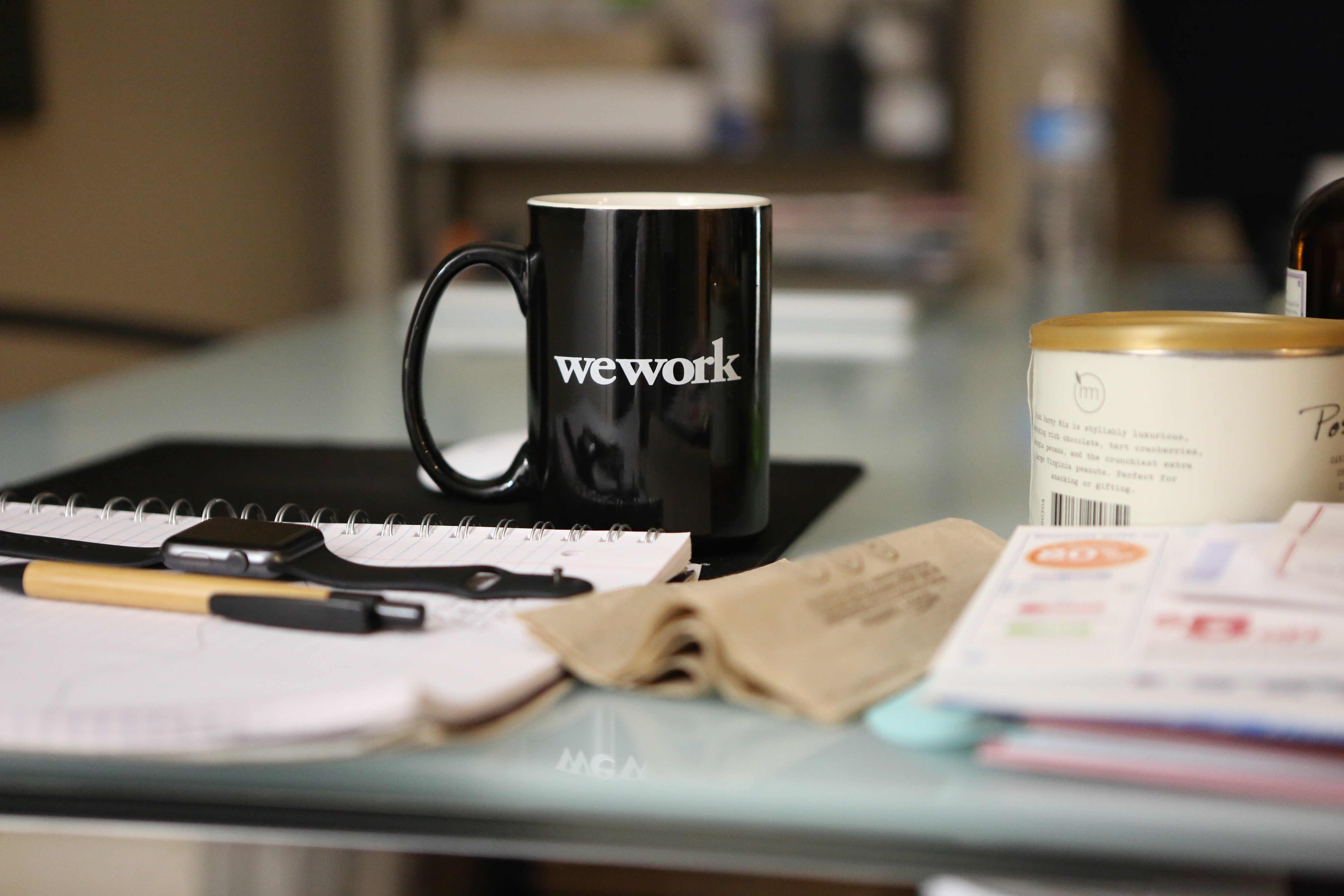The Implications of AI on the Future of Education & Work: An MBA Perspective
A recent CBS graduate shares firsthand experience of the escalating influence of AI across education, work dynamics, business landscapes, and societal structures.




“Spending is down because prices and consumer interest rates remain high and consumers are feeling increasingly ‘squeezed’ ahead of the holidays. It doesn’t help that student loan debt is now due and credit card balances have been exploding. All not good signs for a robust Q4/Holiday"
- Professor Mark Cohen

"I think in broad strokes, WeWork with a major tenant, it was the largest office tenant of new leases signed in 2018, and 2019. So, you know, they went on a major expansion at that point, in many large cities in the U.S., and in fact, sort of all over the world. New York, San Francisco, London, and like you said, Boston are sort of some of their main, were some of their main locations. And, you know, now that they're bankrupt, I think they're looking to they had about, I think, 750 or so locations. Now that they're bankrupt, they're trying to shed some of these leases, which can typically only be done in bankruptcy. And, of course, that's a major negative shock to the office market that was already struggling with record high vacancy rates."
- Professor Stijn Van Nieuwerburgh

“I mean, the bigger issue again, if you want to frame this as a structural issue, you know, wealth and income inequality is a ticking time bomb. In the short run in specific cases, it's okay you know, to say there's a reason why Apple CEO is paid that much okay, fine. But if you aggregate everything together, you're already seeing this in the elections and so on. Right? So with this technology with globalization, wealth and income inequality has gone up a lot. And ignoring that is just dangerous. Now should there be a tax or something else, fine. We can discuss that. But the surfacing that problem and making people aware, even in boardrooms that this is an issue. And even if everybody gets a great wage, and so on, perceived inequality is also a problem."
- Professor Shivaram Rajgopal

"Leaders define work and social culture in the office. Whatever parties and social obligations, anything with drinking events or more casual meetings that leaders hold [are] social obligations for employees. Some of them may love it, some of them may not love it and think this is irrelevant, this is actually taking their off time, it’s not their work hours, but they feel pressured to go. This depends on people’s personalities. Some people are more extroverted, they truly enjoy the parties, some are more introverted, so they’d rather work or stay with their family rather than go to social events. But because their boss is there, and their colleagues are there, they don't want to be perceived as the creepy or weird colleague, so they want to show I'm here, I’m interested, and I love to be in such events. Even if they don’t speak out, they may have pressure in their minds."
- Professor Wei Cai
Nathaniel Keohane, president of the Center for Climate and Energy Solutions, visits CBS for a discussion on climate change policy and action.
Chazen Senior Scholar Geoffrey Heal outlines three major barriers to the decarbonization of electric power generation on a global scale.
Three takeaways from the 2022 Brazil Climate Summit held at Columbia Business School’s Manhattanville campus
Working Paper | January 1, 2025
Journal Article | June 8, 2023
Working Paper | January 1, 2025
Journal Article | Forthcoming
Working Paper | January 1, 2025
Journal Article | May 1, 2023
“[Adapting to climate change] leads to ‘climate-flation.’ That leads to price increases.”
“The U.S. is getting the soft landing corroborated more and more... Labor markets have slowed down, hiring slowed down, but not so much that it spiked unemployment.”
“Prices may or may not be the lowest prices of the season. Needless to say, subject to available inventory, prices tend to become progressively lower the closer you get to the actual holiday.”
“What all investors are looking for is highly scalable businesses. And tech companies, by definition, tend to be highly scalable.”

Yiming Ma is an assistant professor in the finance division at Columbia Business School. She received her Ph.D. in Finance from the Stanford Graduate School of Business in 2018 and holds a BA from Yale University.
Featuring Professor Shivaram Rajgopal

Shiva Rajgopal is the Kester and Byrnes Professor of Accounting and Auditing at Columbia Business School. He has also been a faculty member at the Duke University, Emory University and the University of Washington. Professor Rajgopal’s research interests span financial reporting, earnings quality, fraud, executive compensation and corporate culture. His research is frequently cited in the popular press, including The Wall Street Journal, The New York Times, Bloomberg, Fortune, Forbes, Financial Times, Business Week, and the Economist.

Professor Netzer's expertise centers on one of the major business challenges of the data-rich environment: developing quantitative methods that leverage data to gain a deeper understanding of customer behavior and guide firms' decisions. He focuses primarily on building statistical and econometric models to measure consumer preferences and understand how customer choices change over time, and across contexts. Most notably, he has developed a framework for managing firms' customer bases through dynamic segmentation.

Awi Federgruen is the Charles E. Exley Professor of Management and Chair of the Decision, Risk, and Operations (DRO) Division of Columbia University's Graduate School of Business, where he served as Senior Vice Dean from 1997-2002. Professor Federgruen also served for many years as the Chair of the DRO Division, most recently from 2004-2010.

Rita Gunther McGrath, a Professor at Columbia Business School, is regarded as one of the world’s top experts on strategy and innovation with particular emphasis on developing sound strategy in uncertain and volatile environments. Her ideas are widely used by leading organizations throughout the world, who describe her thinking as sometimes provocative, but unfailingly stimulating. She fosters a fresh approach to strategy amongst those with whom she works. Thinkers50 presented Rita with the #1 award for Strategy, the Distinguished Achievement Award, in 2013.
Featuring Rita McGrath

Rita Gunther McGrath, a Professor at Columbia Business School, is regarded as one of the world’s top experts on strategy and innovation with particular emphasis on developing sound strategy in uncertain and volatile environments. Her ideas are widely used by leading organizations throughout the world, who describe her thinking as sometimes provocative, but unfailingly stimulating. She fosters a fresh approach to strategy amongst those with whom she works. Thinkers50 presented Rita with the #1 award for Strategy, the Distinguished Achievement Award, in 2013.